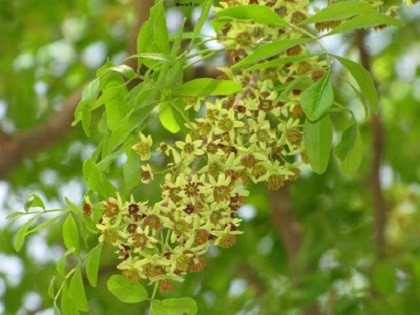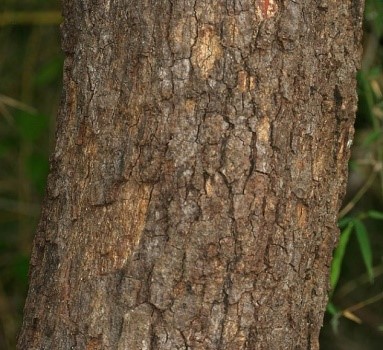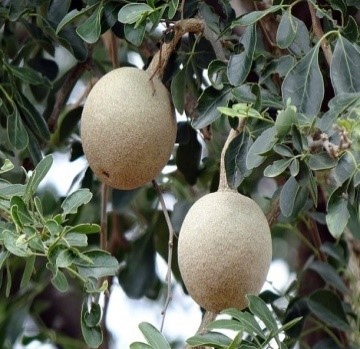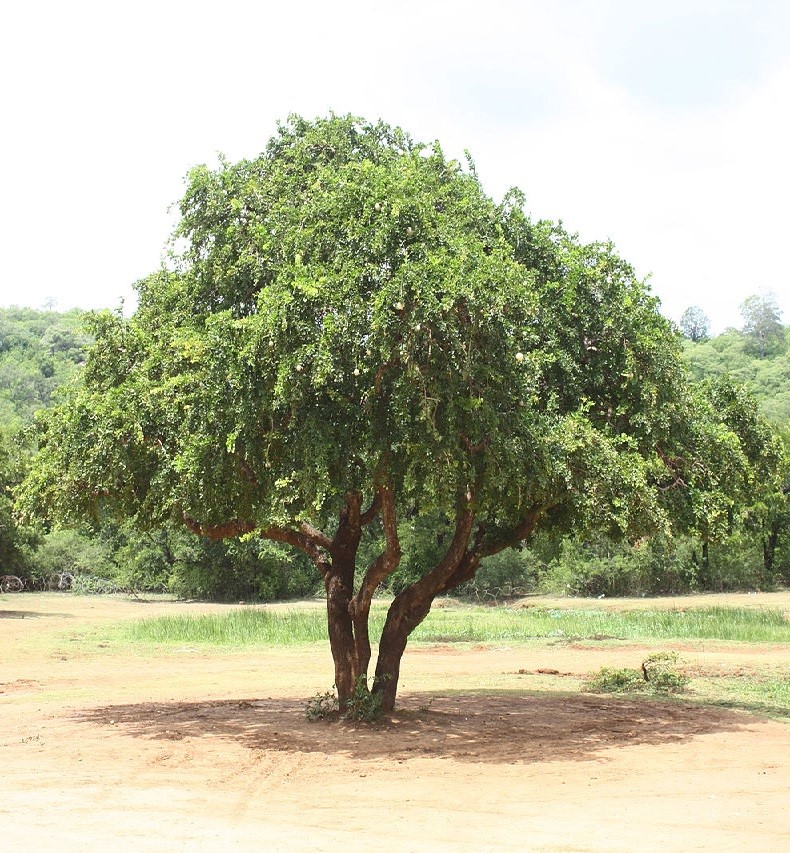Trees
Limonia acidissima L.
Limonia acidissima L.
Description :
This plant is a large tree growing to up
to 9m tall, with spiny and rough bark. The leaves are pinnate, with 5-7
leaflets; each leaflet is about 25-35mm long and 10-20mm wide, with a citrus
smell when crushed. The flowers are whitish and have 5 petals. The fruit is a
berry of about 5-9cm diameter and may be sweet and sour. It has a very hard
rind which can be difficult to crack and open. It has greenish brown colour
from outside and contains sticky brown pulp and small white seeds. It contains
considerable amount of protein, carbohydrate, iron, fat, calcium, Vitamin B, C
etc. 100g of ripe fruit pulp contains up to 49 KCal.
Distribution :
It is native to sub-continent including
Pakistan, India, Bangladesh and Sri Lanka. It can be found in dry plains, up to
an elevation of 450m in the Himalayas.
It develops best in areas where the mean annual temperatures are within the
range 20-30 0C, and the mean annual rainfall is in the range
800-1200mm, preferring a monsoon climate. It favours a deep, well-drained but
wet loamy soil in full sun to grow.
Uses :
Bark is used as a medication for
biliousness. Leaf is considered to be carminative. And it has been used in
treating epilepsy. Leaves are dried and made into a powder and used to cure
oedema, sores, and other diseases. Fruit is considered to be stomachic; and it
is used in making medicine for neutralizing poisons, tonics, and high fevers.
Roots are used in medicines to induce sweating. Paste made from root can be
used to treat female related disorders. Paste with salt used for tired sore
muscles.
(Kerkar
et al., 2020; Morton, 1987)



